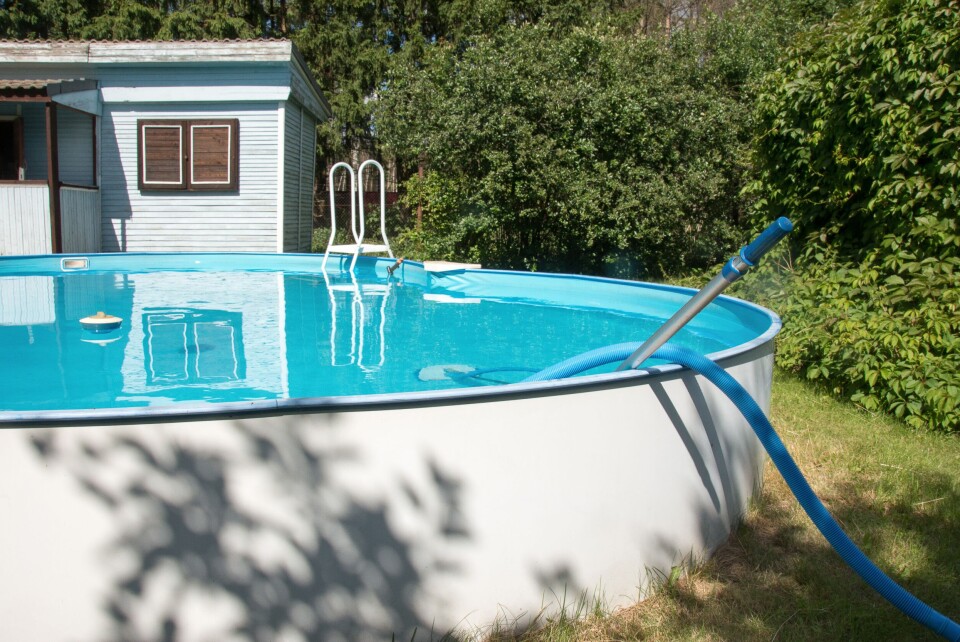-
Mysterious boom rattles residents in south-west France
Local community turns to social media for answers
-
France tightens reimbursement rules for flight delays or cancellations
New measures include mandatory mediation and new claim procedures
-
What snow conditions look like for skiers across French Alps and Pyrenees
Ski resorts are expected to get busier as school holidays begin this weekend
France drought: sales of above ground pools banned in parts of south
The aim is to limit the temptation to use water for pools as departments prepare for local population numbers to quadruple as tourists arrive

Drought conditions in southern France are prompting some areas to tighten their restrictions on water use – including a ban on buying above ground swimming pools.
The ban comes into force on Wednesday (May 10) - the same time drought restrictions will be brought to the highest ‘crisis’ level in parts of the Pyrénées-Orientales department.
Read more: Maximum alert: Drought crisis declared in parts of southern France
Minister of Ecological Transition Christophe Béchu said the aim was to prevent people being “tempted” to fill new pools even though it is prohibited to do so.
The department has already suffered France’s first major forest fire of this year, and may soon be the epicentre of a drought crisis that threatens to spread across the country over summer.
Officials face the dilemma of needing to conserve water usage with strict measures but also to retain high tourist numbers to keep the local economy afloat.
A new restriction on swimming pools
The new restriction adds to the already strict regulations for pool owners.
General above-ground pool restrictions state that filling or topping up a small above-ground pool is banned when a department faces level two drought restrictions (the filling of in-ground or large above-ground pools is banned from level one).
Even if a new pool has been built or purchased recently, it cannot be filled whilst the restrictions are in place.
Despite the risk of a €1,500 fine, the government hopes that cutting off access to pools with the ban will help minimise the number of people who may break the rule.
"It is not a decision of the government [to introduce these restrictions], it is the reality of nature and the situation we are in," added Mr Béchu.
Read also: Swimming pool still adds value to French property despite droughts
Areas must juggle restrictions with tourism
Drought restrictions come in four levels, with ‘crisis’ being the highest and including a ban on all but essential water usage.
Although restrictions can be placed on a departmental basis, often there are variations within departments – for example, the ‘crisis’ restrictions on Wednesday will not include all of the Pyrénées-Orientales but will apply to areas around the Têt and Agly rivers by the Spanish border.
Around 90% of the department is affected by water shortages, and the principal city of Perpignan saw only 173 millimeters of rain between September 2022 and April 2023, far below the average of 447 millimeters.
You can view updated drought restrictions for the country using our map here - currently two departments (Bouches-du-Rhône and Gard) have level four regulations in at least one area.
Like many departments in the south of France however, Pyrénées-Orientales relies heavily on summer tourism, and will need to balance water restrictions with tourist demands.
The population of the department is expected to quadruple as tourists chase the warm weather. Prefects have asked campsites and other tourist amenities to reduce water usage by 35%.
Water from swimming pools is also being collected to be used by municipal services or in the case of forest fires.
“The situation is complicated," said Grégory Marty, the mayor of Port-Vendres, a local coastal town.
“If we only [needed the water] for ourselves, it would be fine, but with this tourist influx - which is necessary for our economy - we could have some difficult months ahead,” he added.
Related articles
France allows local authorities to use wastewater after record drought
Church in drought-hit southern France organises a ‘make it rain’ march
























